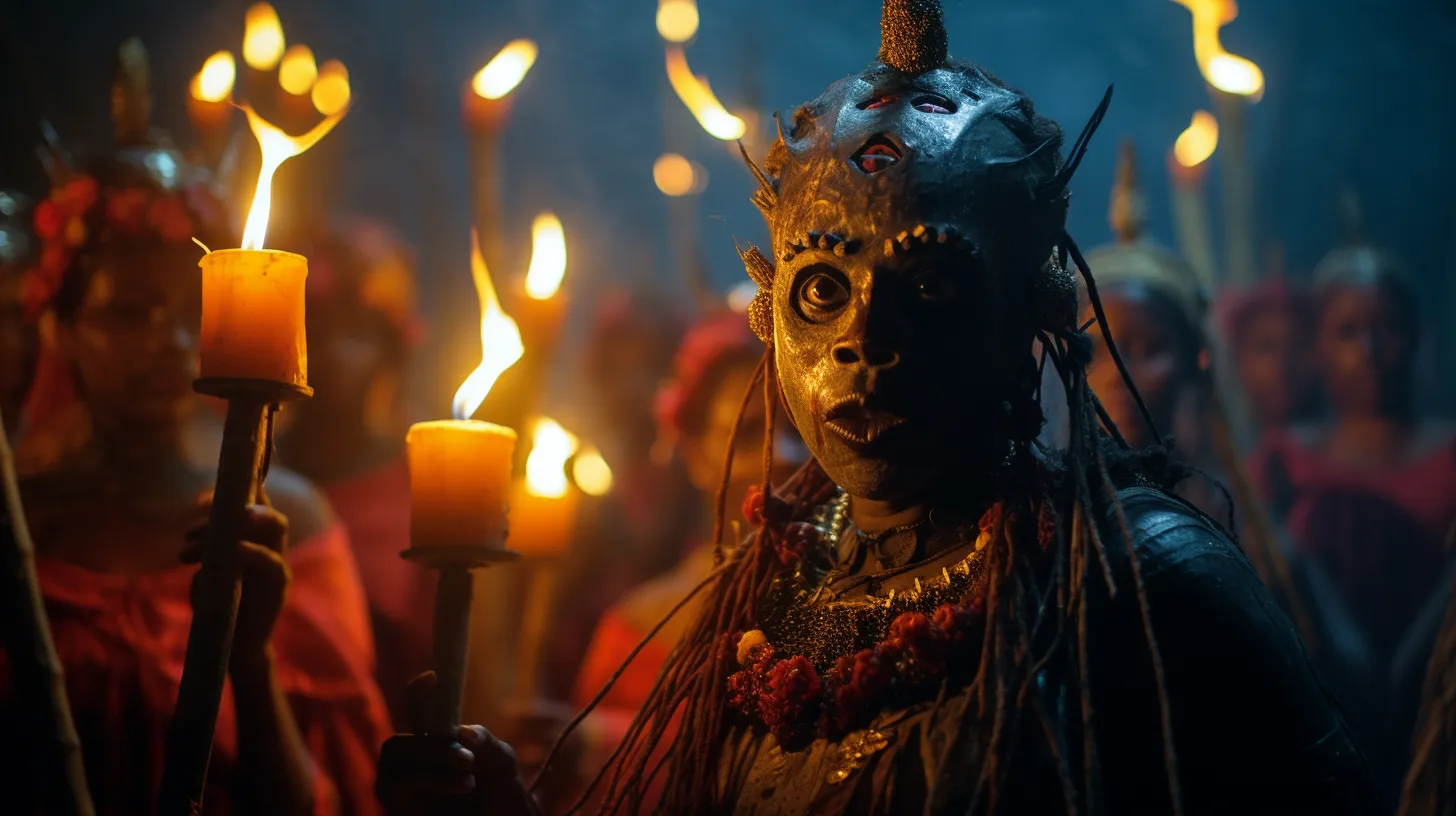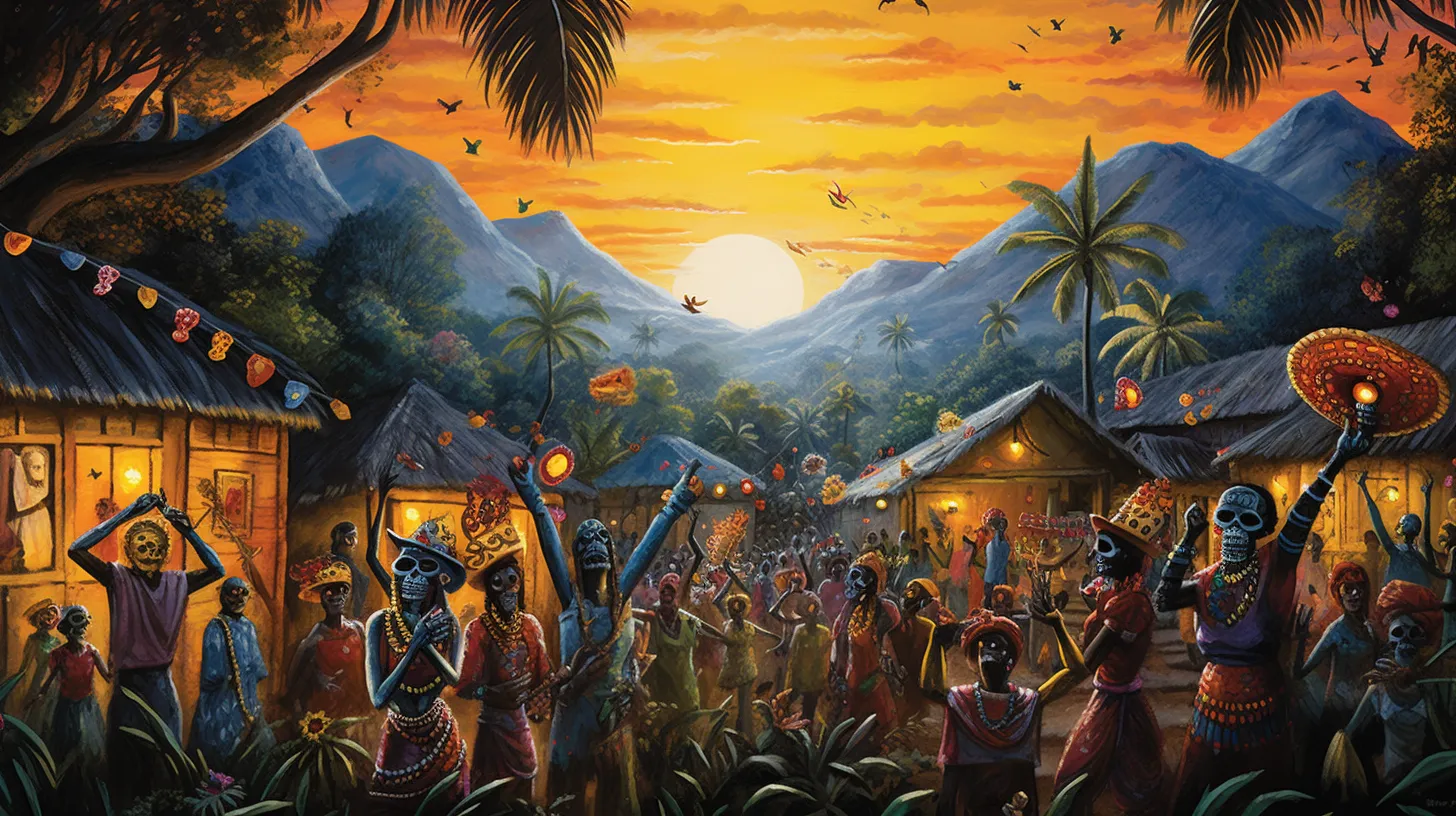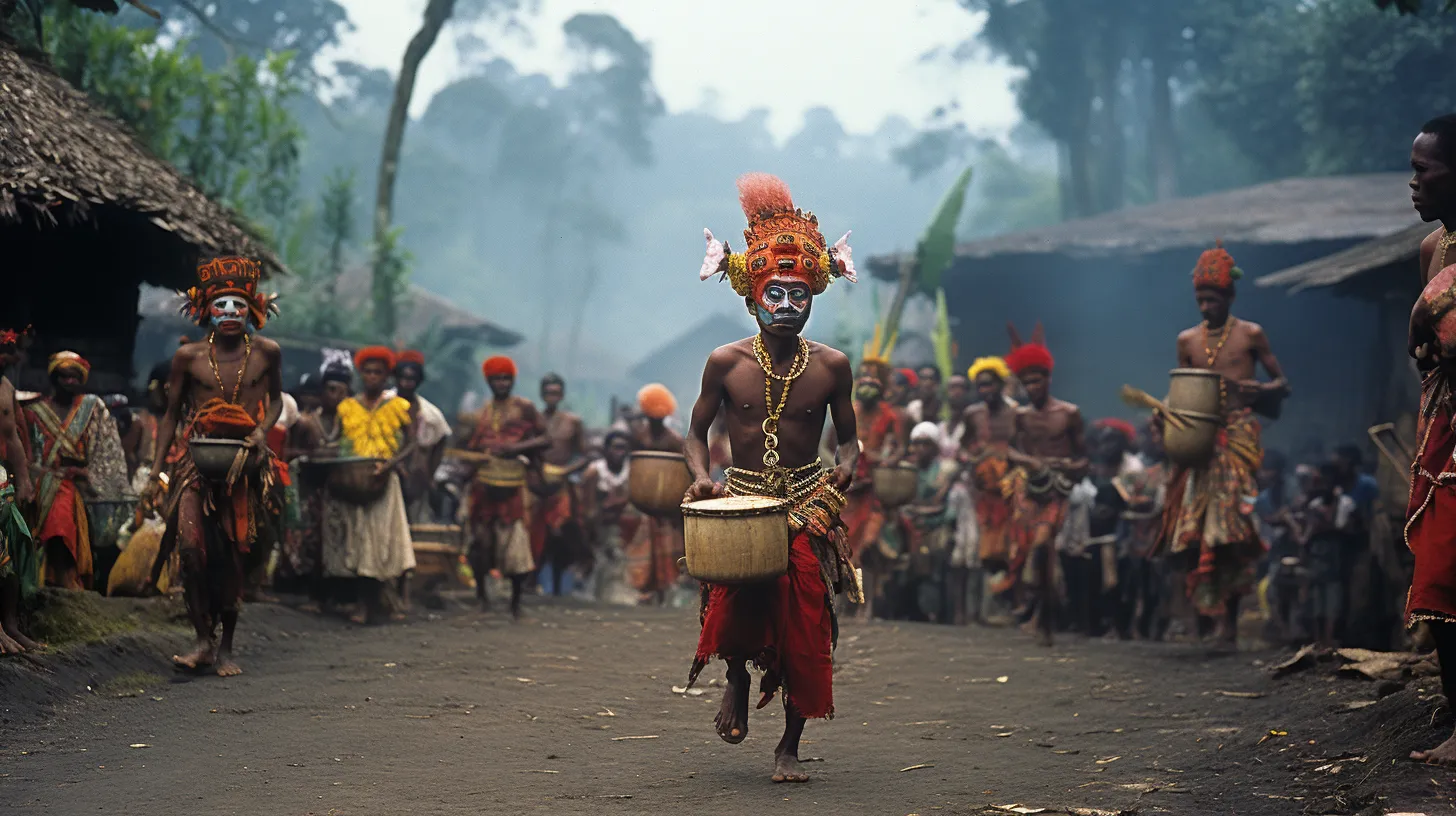The Gede Festival, also known as Fèt Gede, holds a special place in Haitian culture as a tradition deeply rooted in vodou customs. Occurring on November 1 and 2, it is a time to honor and communicate with the spirits of departed loved ones.
This vibrant celebration unites vodou practitioners in paying tribute to the gede spirits, expressed through music, dance, and offerings at cemeteries. Prominent figures like Bawon Samdi (Papa Gede) lead the festival, showcasing rich cultural traditions and rituals.
By embracing the festival’s lively and spirited nature, one gains a profound understanding of Haitian customs and beliefs. The Gede Festival carries immense cultural significance, providing an opportunity for both locals and visitors to connect with Haiti’s spiritual heritage.
Vodou and the Gede

Vodou, a prominent aspect of Haitian culture, is intricately linked to the Gede Festival, as it provides the spiritual foundation for honoring the gede, the spirits of deceased loved ones.
Vodou practitioners engage in transformation rituals during the Fèt Gede, contacting the deceased and transitioning them into the gede through Vodou ceremonies. These rituals are a fundamental part of the festival, symbolizing the connection between the living and the spirits of the departed.
The vodouwizan play a crucial role in facilitating this transformation, creating a space for the spirits to be honored and celebrated.
The Gede Festival, therefore, serves as a platform for these vodou ceremonies, where the spirits are invoked, and the living connect with the realm of the gede, embracing the rich spiritual traditions of Haitian culture.
Gede Celebrations

During the Gede celebrations in Haiti, vodouwizan gather around cemeteries to honor the deceased during Fèt Gede. Traditional Gede costumes, characterized by vibrant colors and symbols representing the spirits, are worn during these celebrations.
Gede music, a unique genre infused with African rhythms and traditional vodou melodies, accompanies the festivities. Participants offer gifts such as candles, rum, and food at the gravesites, believing that the gede will grant them protection and guidance in return.
The atmosphere is lively as possessed vodouwizan, identified by their distinct attire and the act of pouring pepper-infused alcohol on their bodies, engage in spirited dancing and singing.
These rituals, deeply rooted in Haitian culture, reflect the community’s profound connection to their ancestors and the spiritual world.
Bawon Samdi and the Gede Family

Bawon Samdi, also known as Papa Gede, is a central figure in the gede family, representing the father figure in Haitian vodou culture. His attire holds deep symbolism and significance, often seen smoking cigars, wearing a top hat, and sunglasses.
These elements are not mere fashion choices but are essential to his representation. The top hat symbolizes his connection to the spirit world, and the sunglasses represent his ability to see both the living and the dead.
Manman Brijit, on the other hand, plays a crucial role as the mother figure in the gede family celebrations, embodying nurturing and protective qualities. Together, Bawon Samdi and Manman Brijit form the foundational pillars of the gede family, guiding and overseeing the revered Fèt Gede celebrations.
How to Get Involved

Fèt Gede, the Haitian Day of the Dead celebration, offers opportunities for participation throughout the month of November, with the main events taking place on November 1 and 2. Here’s how you can get involved:
-
Attend the Grand Parade: The biggest parade happens at the Grand Cemetery in Port-au-Prince, where you can immerse yourself in the vibrant festivities.
-
Embrace Haitian Culture: The festival embodies essential elements of Haitian culture, including music, food, and vibrant colors, offering a unique opportunity to engage with local traditions.
-
Deepen Understanding: Participating in Fèt Gede can deepen your understanding of Haitian traditions and the cultural significance of this important festival.
Cultural Quiz and Deepening Understanding

The festival’s cultural quiz and activities serve to deepen participants’ understanding of Haitian traditions and customs. By engaging in a cultural quiz, individuals can test their knowledge of the symbolism and rituals of Fèt Gede, gaining insight into the significance of this celebration within Haitian culture.
Delving into the impact of Fèt Gede on Haitian identity and community, participants can appreciate the profound influence of this festival on the collective consciousness and sense of belonging within the Haitian people.
By embracing the raucous, bawdy, and fiery nature of the festival, individuals can immerse themselves in the vibrant tapestry of Haitian traditions, fostering a deeper connection to the rich cultural heritage that is intricately woven into the fabric of Fèt Gede.



